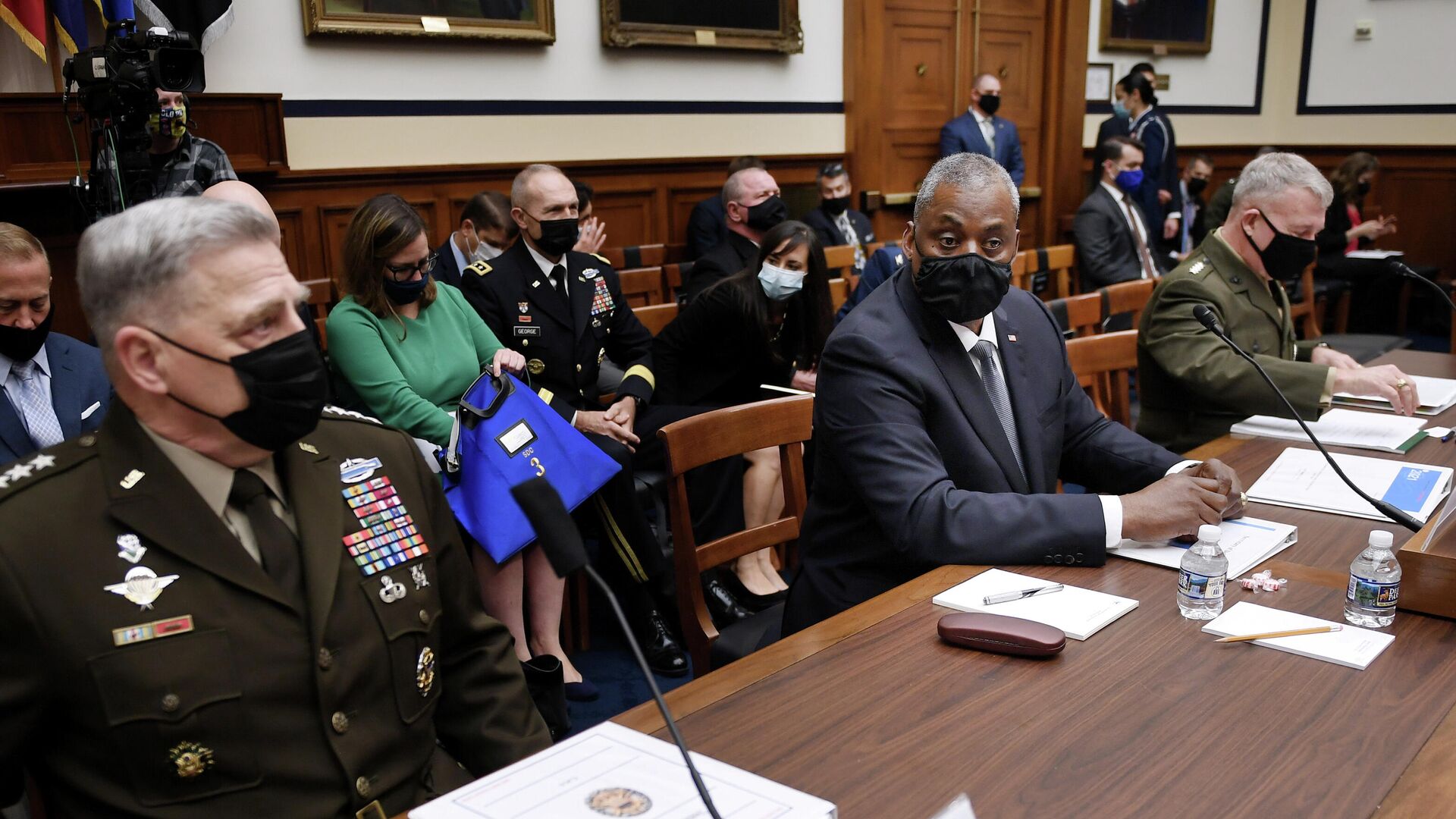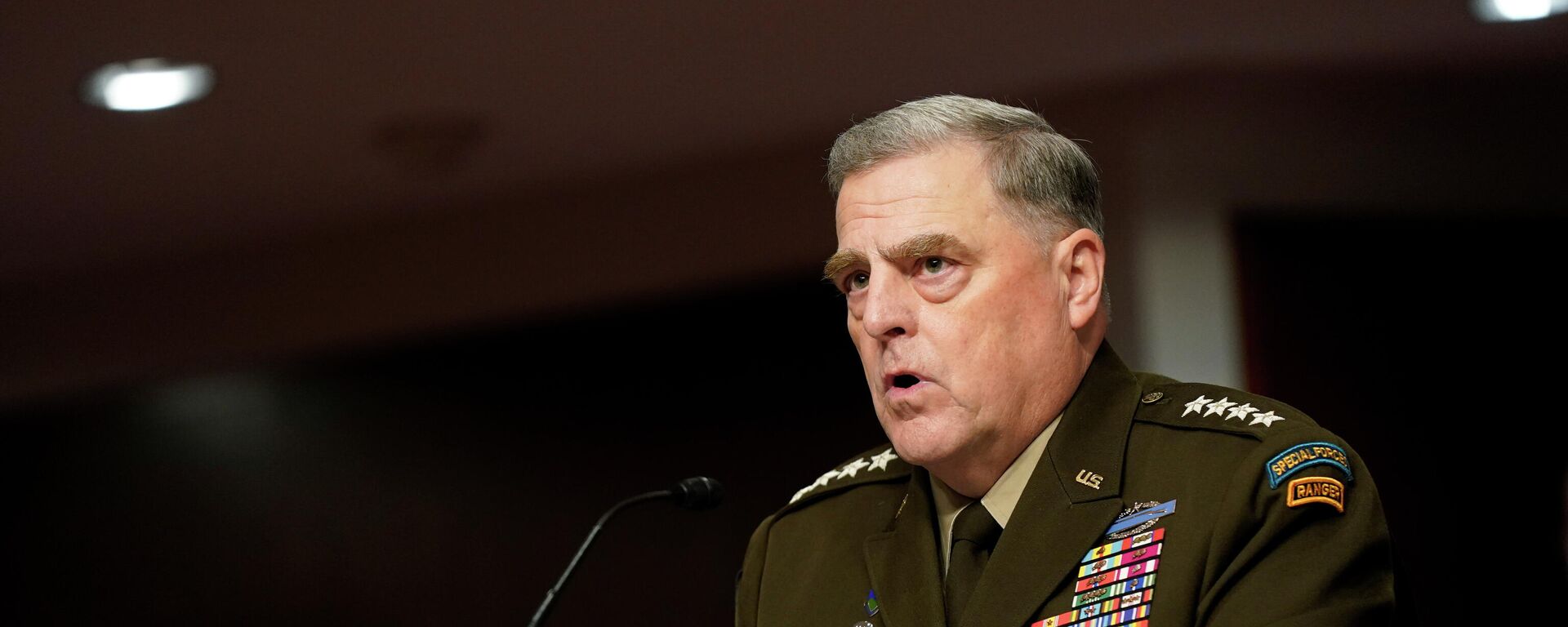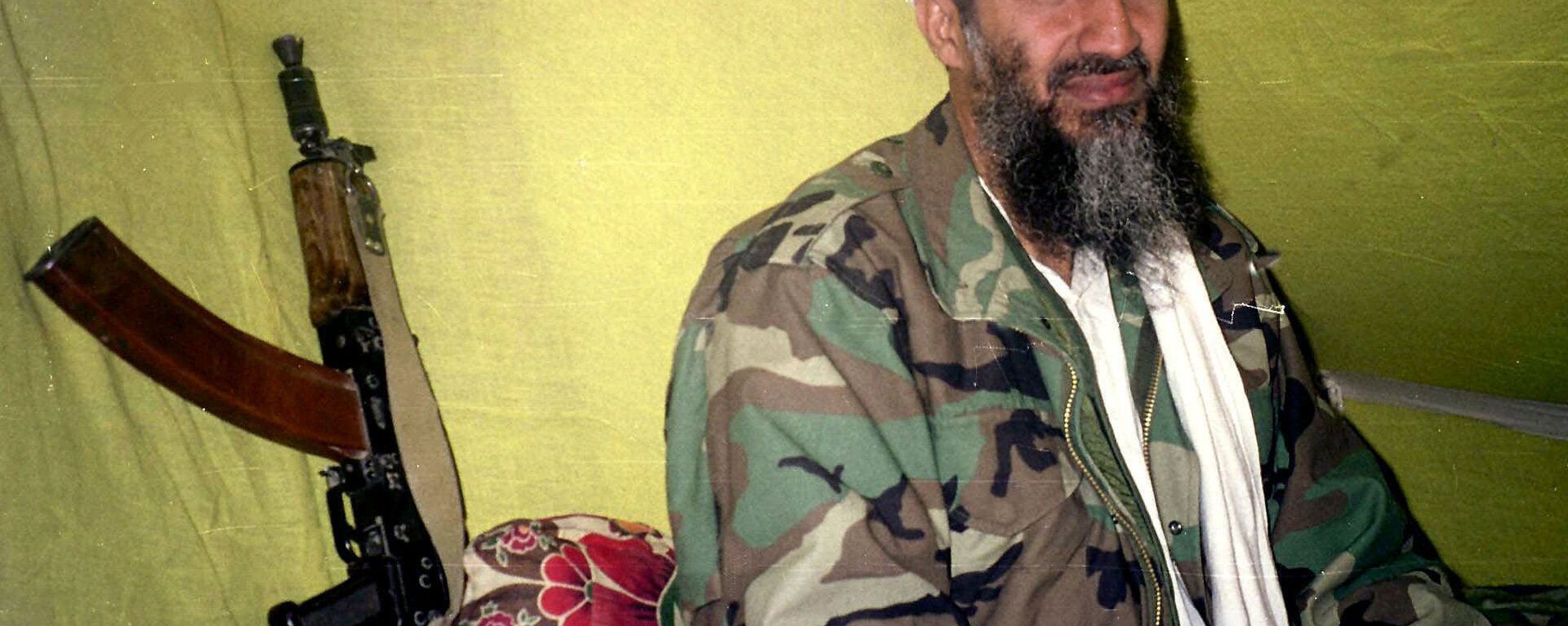The Blunder Games: CENTCOM Chief Blames Trump for Afghan Army’s Collapse
10:28 GMT 30.09.2021 (Updated: 12:44 GMT 13.04.2023)

© REUTERS / POOL
Subscribe
America’s top generals faced two days of questioning by members of the Senate and House armed services committees, where they blamed the current president, the former president, the Afghan army, intelligence, and circumstances beyond anyone’s control for the sudden and unexpected collapse of the Kabul government.
Former president Donald Trump’s decision to sign a peace deal with the Taliban* was a key factor in the dramatic mid-August disintegration of the Afghan security forces and government and the country’s takeover by the Islamist militants, General Frank McKenzie, head of US Central Command (USCENTCOM), has said.
“The signing of the Doha agreement had a really pernicious effect on the government of Afghanistan and on its military, psychological more than anything else, but we set a date – certain for when we were going to leave and when they could expect all assistance to end,” McKenzie said in testimony before the House armed services committee on Wednesday.
McKenzie insisted that he believed “for quite a while” that the Afghan government would inevitably collapse if the US reduced troop numbers below the 2,500 stationed in the country at the end of the Trump presidency, and that “the military would follow” if this took place.
McKenzie also blamed President Joe Biden, suggesting that he put “the other nail in the coffin” of the Afghan government by announcing that remaining US forces would be withdrawn in April. The commander suggested that that decision made it impossible for the Pentagon to maintain awareness of the state of the Afghan army “because our advisors were no longer down there with those units.”
Pentagon chief Lloyd Austin echoed McKenzie’s complaints, both about the troop withdrawals and the Doha deal.
“We did not anticipate the snowballing effect caused by the deals that the Taliban commander struck with local leaders in the wake of the Doha agreement, and that the Doha agreement itself had a demoralising effect on Afghan soldiers,” Austin said.
The defence secretary also blamed Afghan military and civilian leaders, saying the US did its best to “build a state, but…could not forge a nation.”

Afghan Pullout Was ‘Developed by Child’s Mind’, Trump Says After Senate Hearing With Military Chiefs
29 September 2021, 04:15 GMT
“We need to consider some uncomfortable truths: that we did not fully comprehend the depth of corruption and poor leadership in their senior ranks, that we did not grasp the damaging effect of frequent and unexplained rotations by President [Ashraf] Ghani of his commanders,” the Pentagon chief said.
Joint Chiefs Chairman Mark Milley, the third of the three senior military officer who took part in Wednesday’s hearing, admitted that the Pentagon expected the Afghan government and military to collapse, but suggested intelligence was to blame for getting the timeline wrong.
“I think there was a lot of intelligence that clearly indicated that after we withdraw, that it was a likely outcome of a collapse of the military, a collapse of the government. Most of those intelligence assessments indicated that would occur late fall, perhaps early winter, [and that] Kabul might hold till next spring. While we were there though, up through 31 August, there’s no intel assessment that says the government is going to collapse and the military is going to collapse in 11 days that I’m aware of,” Milley said, referring to the 11 days between the day that the Taliban captured its first city in early August, and the fall of Kabul on 15 August.
Milley also blamed the State Department for waiting “too long” to order civilian evacuations out of Kabul, resulting in the chaos at the airport in the final two weeks of August.
Before Wednesday’s hearing, McKenzie, Austin and Milley appeared before the Senate armed services committee on Tuesday, where they defended the Afghan evacuation as a “logistical success but a strategic failure” and similarly indicated that Biden was to blame for ordering that the 2,500 troop-strong force be withdrawn in April.
POTUS Deflects Blame
Biden proactively deflected any attempts to finger him for the Afghan calamity last month, telling ABC News on 19 August that his generals “didn’t” recommend keeping 2,500 troops in the country forever, and suggesting their advice was “split.”
Biden and other White House staff have also justified the decision to withdraw by pointing to the Doha deal, and saying that if the US did not leave, they would be back at war with the Taliban and would need to send more troops into the war-torn country. “If I had said, ‘we’re gonna stay’, then we’d better prepare to put a whole hell of a lot more troops in,” the president said.
“There is no good time to leave Afghanistan. Fifteen years ago would’ve been a problem, 15 years from now. The basic choice is – am I gonna send your sons and daughters to war in Afghanistan in perpetuity?...What constitutes a defeat of the Taliban? What constitutes defeats? Would we have left then? Let’s say they surrender like before. Ok. Do we leave then?...We spent over $1 trillion, 20 years. There was no good time to leave,” Biden stressed in his ABC interview.
The war in Afghanistan was America’s longest war. Begun in late 2001, in the aftermath of the 9/11 terror attacks on New York and Washington, the war is estimated to have cost taxpayers over $2.2 trillion (or about $300 million per day for almost 20 years), according to Brown University’s Costs of War project. As many as 100,000 Afghan civilians were killed in the conflict, as were 70,500+ Afghan security forces personnel, tens of thousands of Taliban fighters, over 3,500 US and coalition troops, and 4,000+ western mercenaries.
In February 2020, the Trump administration signed a peace agreement with the Taliban, committing the US to pull all troops out of Afghanistan by May 2021 in exchange for a halt to militant attacks, and promises not to allow terrorist groups such as al-Qaeda* and Daesh (ISIS)* to operate on Taliban-controlled territories. The agreement also pledged the Taliban to engage in negotiations with what was then the Afghan government to bring peace to the war-torn nation.
* Deemed a terrorist group in Russia and many other countries.


